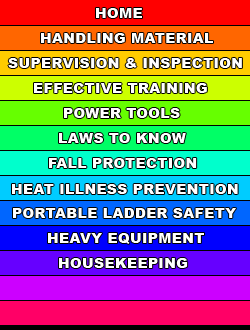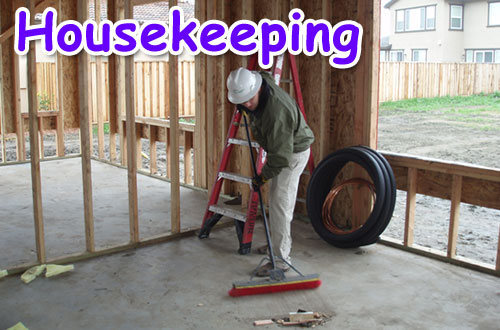
FOR STUDENTS AND YOUNG EMPLOYEES | Click here For Teachers and Employers
What Can Happen to You
RISKY BUSINESS

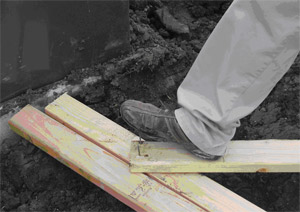 My buddy and I were goofing around on the job site. There was debris and clutter lying around. He pushed me over and I landed on a nail sticking out of a board. It went through my foot".
My buddy and I were goofing around on the job site. There was debris and clutter lying around. He pushed me over and I landed on a nail sticking out of a board. It went through my foot".
"I used to do cleanup for a construction company. One guy I knew was working outside - two stories up - without a harness. Before I could say anything, he slipped, fell, and landed on top of some plywood with a nail sticking up. The nail pierced his kidney".
Just like at home, waste, debris, mud, and dirt can be obstacles and make work that much harder. Poor housekeeping can cause accidents and serious injuries to yourself and others. These injuries can lead to you missing work, working with pain, or not being able to work at all. By doing good housekeeping you can prevent slips, trips, falls and other injuries.
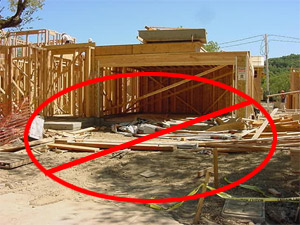
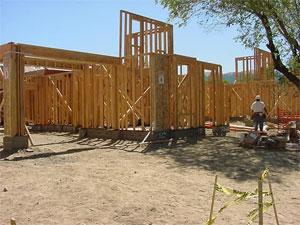

How to Keep Yourself Safe
You are responsible for following the training and safe work practices of your teachers and employers.
1. Get Trained On
- The importance of good housekeeping because clean worksites are safer
- Your job site procedures for safer ways to lift, carry, handle materials, and remove waste
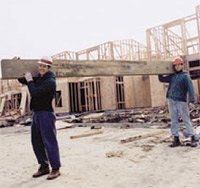
Follow your jobsite procedures
for safe handling of materials - Good housekeeping practices such as separating:
- General waste and trash from hazardous waste such as used oil, oily rags, and acids
- Combustible from noncombustible scraps and materials. Keep combustibles in containers with lids to prevent ignition
- How to protect yourself from housekeeping hazards, including the wearing of appropriate personal protective equipment (PPE)
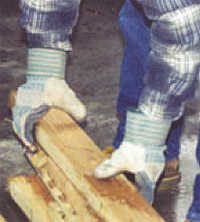
Use gloves to protect hands
2. Make Good Choices
- Always follow your training
- Wear good:
- Foot wear to avoid slips, trips, and falls.
- Fitting gloves when handling materials or wastes
- Always cleanup during the day as you work by picking up and placing wastes and debris in bins and labeled receptacles. Also, clean up at the end of each shift.
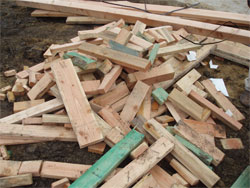
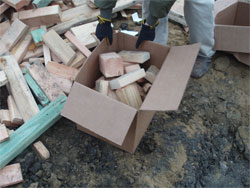
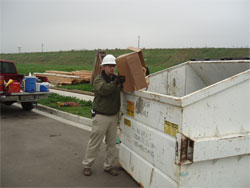
- Remove or bend nails prior to disposal or storage of materials
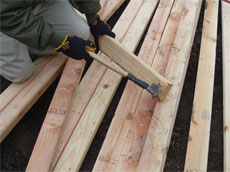
- Coil and remove extension cords, lines, and hoses from doors and entrances
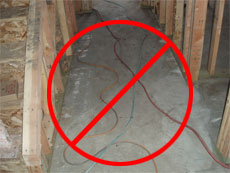
- Return tools not used to the gang box
- Clean up spills right away
- Keep walkways, stairways, ladders, and areas around buildings free of materials, debris, mud and dirt
- Remove or bend nails prior to disposal or storage of materials
- Do not throw waste, materials or tools from elevated work locations. Check first with your supervisor or teacher for the proper procedure.
- Cap ends of all exposed rebar
- Store and chain compressed gas cylinders in upright position
- Talk to you teacher or supervisor if you:
- Are not sure how to safely handle debris or other materials
- Think something is unsafe
- Feel pain or suffer an injury
 For more information on how to keep yourself safe, read Best Practices, Training Topics for Teachers and Employers.
For more information on how to keep yourself safe, read Best Practices, Training Topics for Teachers and Employers.
February 2010


